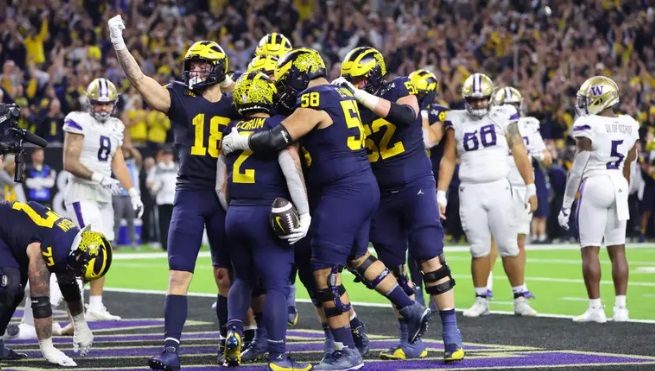College football is as unsettled as ever, and a big part of that has plenty to do with bowl games and the College Football Playoff. But perhaps that is all about to change.
Videos by FanBuzz
As college administrators continue to advocate for expanded postseason access across all sports, Bowl Season director Nick Carparelli predicts a surge in bowl games — rather than a reduction. With the CFP set to expand from four to 12 teams, and potentially 14 by 2026, the trend towards expansion is evident across college athletics.
While the NCAA doesn't have a direct stake in the CFP or the existing 42 bowl games, the desire for increased postseason opportunities mirrors developments in other NCAA sports. Talks of expanding the men's NCAA Tournament in basketball to include as many as 80 teams is just one example of that.
The recent challenge of finding enough bowl-eligible teams in the past three seasons, leading to invitations extended to five-win teams like Rutgers, Rice, and Minnesota, underscores the need for more postseason options. Additionally, concerns about the quality of play have been raised due to player opt-outs and transfers affecting team rosters.
Carparelli proposed a potential solution to address opt-outs through a move towards a revenue-sharing model for players. Pending an NCAA settlement in an antitrust lawsuit seeking back pay and revenue-sharing, the implementation of such a model could redefine the relationship between student-athletes and universities, potentially incentivizing participation in postseason games.
Amidst the broader uncertainties in college athletics, including discussions on player compensation, conference realignment, and negotiations for larger CFP payouts, private equity firms have shown interest in pitching playoff opportunities to Group of Five conferences, further highlighting the evolving landscape of college sports.
"It seems as if these outside collectives are going to be controlled by the university's athletic department, moving forward," Carparelli said, via CBS Sports. "That's what everybody seems to want. What is sure to follow is some type of formal agreement between the student-athletes and the university: we're going to pay you X amount of money, and for that you're going to perform certain duties. For college football players, it's going to include 12 regular-season games, a bowl game and/or the CFP. I think we're gonna see one-, two- and three-year contracts between universities and student-athletes to do that.
